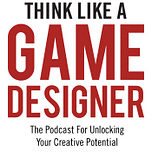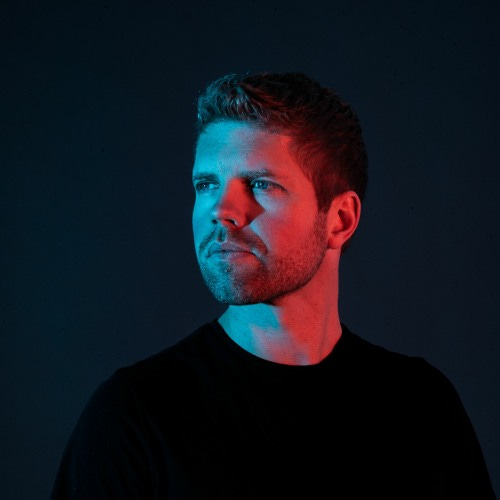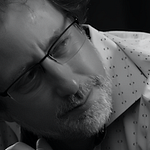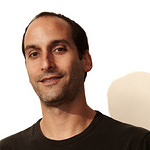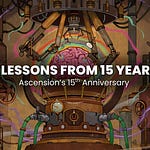About Morgan Page
Morgan Page, the renowned DJ and music producer, has etched his mark in the world of electronic music with hits like "The Longest Road" and "In the Air." His influence transcends pulsating beats and catchy melodies, extending into the realm of songwriting, sound design, and even the science of creativity.
In this episode, we unravel the layers of Morgan's creative endeavors, delving into his artistic pursuits and insights into harnessing one's creative juices. Whether you're a budding game designer, musician, or someone seeking to inject creativity into your daily life, this conversation promises a treasure trove of knowledge. Tune in and Enjoy!
Ah-ha! Justin’s Takeaways
I’ve always believed that the principles of design are universal. It doesn’t matter whether you are designing a game, writing a book, starting a business, or creating music. This episode proves that principle as Morgan Page and I deep dive into the creative process and specific principles you can apply no matter your field.
For me, the biggest takeaways were:
Accountability is a superpower. Morgan thrives on having publishers, managers, and colleagues rely on him to deliver. As I like to say, “Deadlines are Magic.” Find ways to put pressure on yourself with meaningful deadlines to make progress quickly.
Better Workflow = Better Art. Morgan talks about how he physically and digitally set up his workspace to streamline as much as possible. Keep your tools in easy reach and your files organized so you have as little resistance as possible when creating and reaching a flow state.
Superstardom has humble beginnings. I always say you should work for free before expecting to get paid to do something you love. Morgan tells the story of his early days in radio and how he honed his craft long before getting paid and becoming a megastar. Keep a beginner’s mind and optimize for learning when getting started in a new field.
In the comments, respond to Morgan’s question:
What are some ways people are thinking about gamifying the creative process?
Show Notes:
Creativity in Music and Games (00:19:00):
“I'm always thinking about how a song is going to resonate with a crowd. And that really informs the arrangement because I'm thinking: the crowd's getting bored, this breakdown is too sparse, I'm just flapping in the wind here, I need to get to the drop. I need to get to the progressions—it definitely informs how I will program.”
We delve into the parallels between the creative principles of game design and music composition. We kick off by examining the pivotal role of player and listener experiences. We then dive into the nuanced art of building and releasing tension. In the realm of game design, I articulate these insights as the core concepts of tension and the paramount importance of player experience.
Additionally, we touch upon the importance of continuously seeking knowledge in your respective field. This thirst for understanding was a driving force behind the inception of this podcast and also inspired Morgan to conduct artist-on-artist interviews.
Creative Collaborations and Creative Boundaries (00:34:00):
"The muse comes in and whispers in your ear, like, maybe do this melody... this is the chorus line, and then how are we going to tell the story as it unfolds."
Morgan and I discuss the iteration cycle for music, especially when collaborating with other musicians. This iterative process forms the heart of the design loop: a creative journey where feedback is gathered and modifications are made until the project reaches its polishing phase. Morgan emphasizes the significance of creative boundaries in this iterative process. According to every guest I've spoken with, these boundaries are crucial for crafting something truly exceptional.
AI and the Creative Process (00:50:33):
"I think this is a good solution to the ‘I’ll know when I see it’ dilemma people have with their creative teams. You can iterate, and someone's ego isn't getting bruised, and it's not getting expensive."
We further discuss the role of AI in the creative process. A technique both of us employ involves leveraging AI to generate samples, which we then present to artists as inspiration for crafting original art. Additionally, we venture into speculative discussions about the future trajectory of AI and its potential impact on the realms of music and games.
Notch Party Design (01:01:40)
“He made a nightclub from scratch. It was like a Berlin underground rave, and then they tore it down the next day.”
Morgan and I delve into the role of friction in the creative process. He shares a story about a friend who organizes parties for Notch, the creators of Minecraft. At these events, actors are intentionally brought in to introduce friction, ensuring attendees leave with a heightened and unforgettable experience. It underscores the importance of being attuned to the experience you're shaping, be it a party, a piece of music, or a game.
The Truth in Clichés (1:10:00)
"It's like when they say that cliché is truth worn smooth. So, it's sort of like just because you hear it a lot doesn't mean it's untrue."
In this part of the conversation, Morgan Page emphasizes the importance of fundamental principles that apply across various creative disciplines. He advocates for daily reminders of these core concepts, explaining how keeping physical cards or notes around helps him stay grounded in these essential truths, even suggesting a level of gamification in the creative process. The discussion touches on the nature of clichés in creative work, particularly in songwriting. While clichés might lose their sharpness and impact over time due to overuse, they are rooted in truth. The challenge, then, is to present these truths in fresh, attention-grabbing ways, thus keeping the message alive and relevant.


